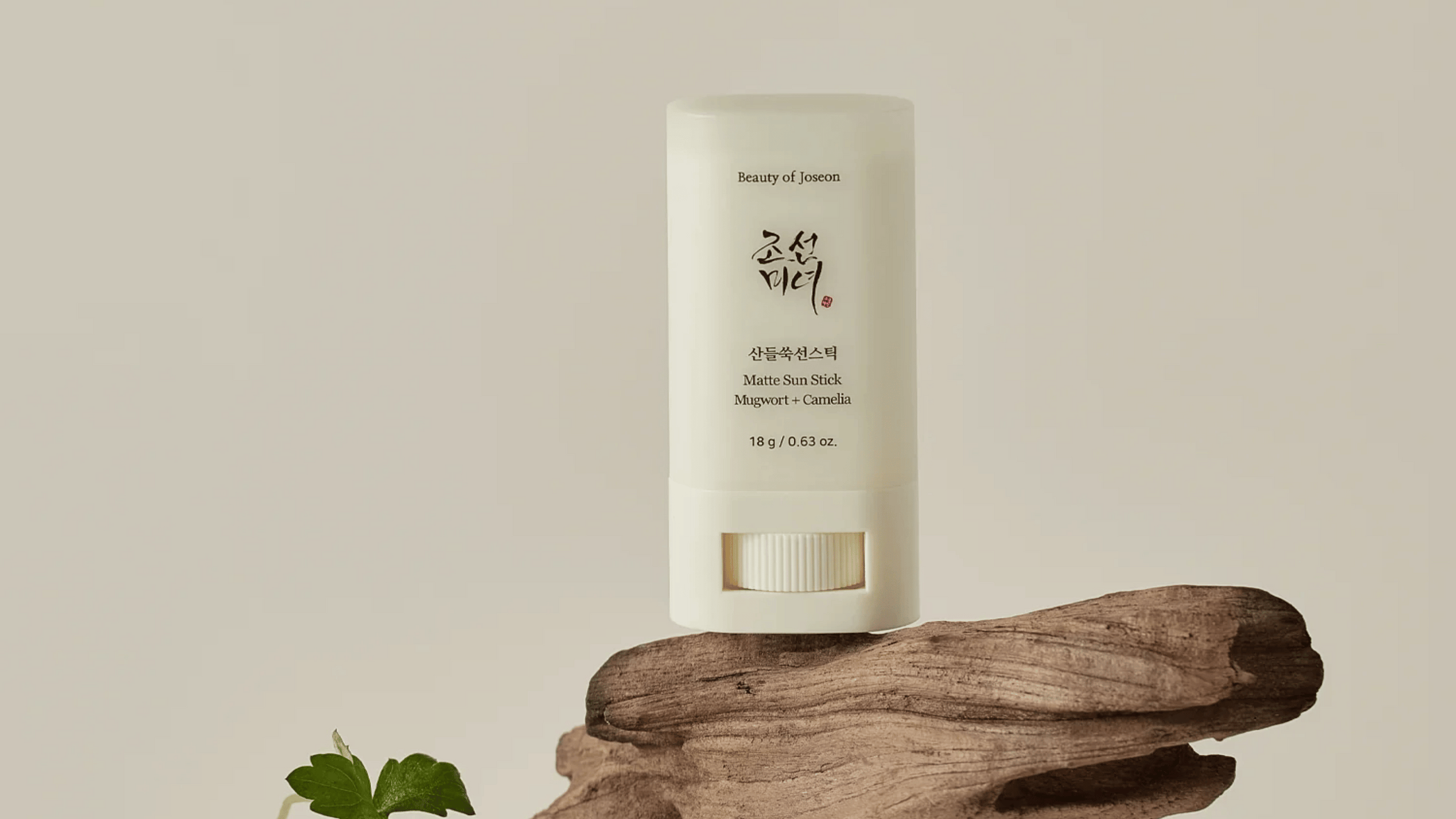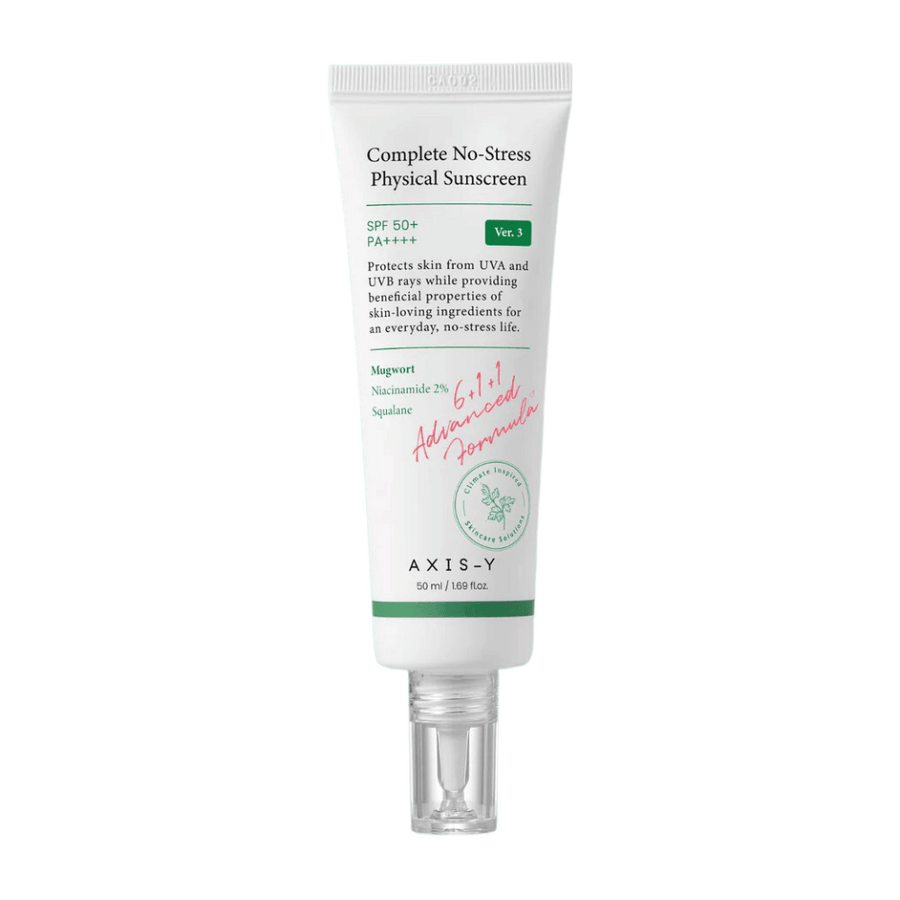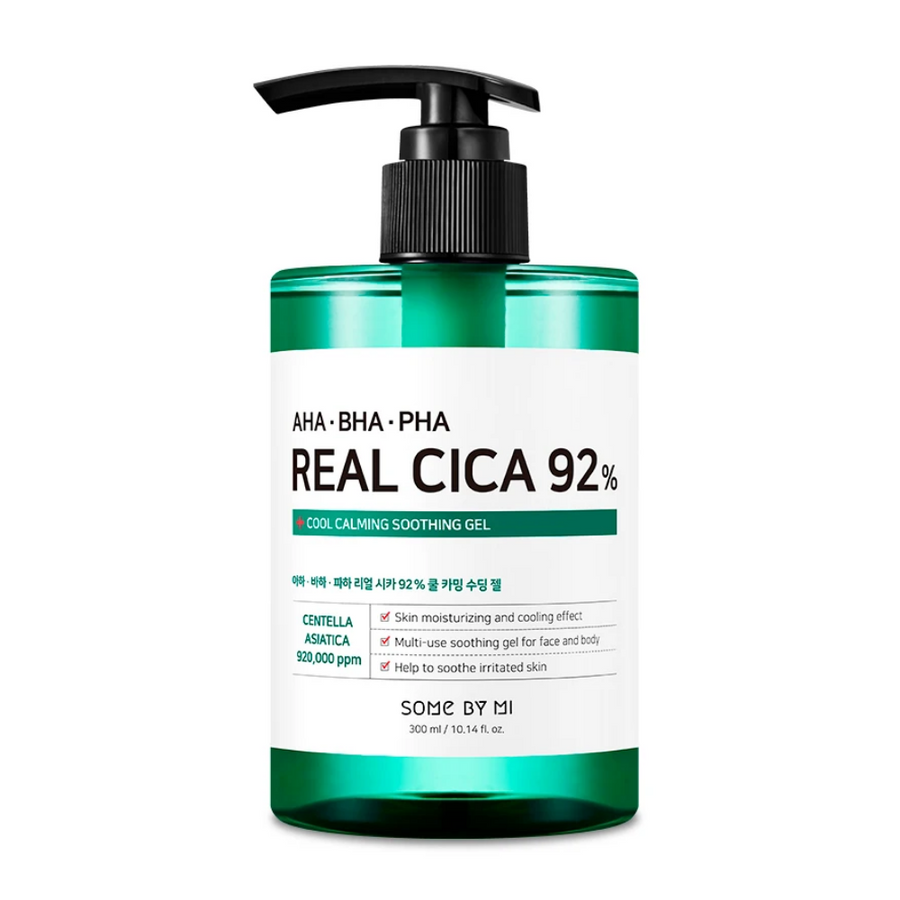
Mugwort, or Artemisia vulgaris, is a plant that has long been used for its medicinal and ritual properties. This versatile herb is now a popular ingredient in skincare, especially in k-beauty, thanks to its soothing and moisturizing properties. In this text, we will explore what mugwort is, its history, and why it is so beloved in skincare. Mugwort grows throughout the northern hemisphere and is commonly found in nature.
Key Takeaways
- Mugwort (Artemisia vulgaris) has traditionally been used for medicinal and cultural purposes, and its antiseptic and anti-inflammatory properties make it a valuable ingredient in skincare.
- In Korean skincare, mugwort is primarily used for its soothing and moisturizing properties, making it ideal for treating sensitive and irritated skin.
- Mugwort's active ingredients, such as artemisinin and flavonoids, offer protection against inflammation and increase skin hydration, making it useful for various skin types and issues.
What is mugwort (mugwort)?
Mugwort, scientifically known as Artemisia vulgaris, is a plant with a long and fascinating history. It has been used for thousands of years in various cultures for both medicinal and religious purposes. Mugwort is a perennial herb that grows wild in many places and has traditionally been used to treat a range of ailments, including:
- Stomach problems
- Menstrual pain
- Sleep issues
- Digestive disorders
Mugwort is often compared to Artemisia absinthium (wormwood), which also has a rich history of use against various diseases and in food and drinks, but is warned for its toxicity at higher doses.
This plant has also been used in various rituals and ceremonies, highlighting its cultural significance throughout history.
Its popularity in skincare has increased significantly, especially in Korean skincare where it is used to soothe, moisturize, and protect the skin. But what makes this plant so special? To understand this better, we need to explore its origins and history, as well as the unique properties that make mugwort a powerful ingredient in skincare.
Origin and History
Mugwort, or Artemisia vulgaris, is one of the oldest known medicinal plants and has a long history of use in traditional medicine. In Asia, particularly in traditional Chinese medicine, it has been used to treat both internal and external health problems. This perennial herb has played an important role in treating ailments such as stomach problems and menstrual pain, and its use spans over several thousand years. Updated information on mugwort's use and protection will be published in 2024.
Not only in Asia, but also in other parts of the world such as Europe and North America, mugwort's (mugwort) medicinal properties have been recognized and utilized. It has been used to treat wounds, burns, and various skin conditions, demonstrating its wide range of applications.
Properties of Mugwort Herb
Mugwort is rich in active ingredients such as artemisinin and flavonoids, which are known for their strong antioxidant and anti-inflammatory properties. These compounds help protect the skin from damage caused by free radicals and improve skin texture.
In addition to antioxidants, mugwort also contains terpenoids that provide additional anti-inflammatory effects, making it particularly effective for soothing irritated skin. This makes mugwort an excellent ingredient for those with sensitive skin or skin conditions like acne and redness.
Why Mugwort is Popular in k-beauty
Mugwort has gained a strong footing in Korean skincare, and it's not hard to understand why. Its medicinal and ritual properties have made it a favorite among many skincare enthusiasts. In k-beauty, mugwort is primarily used for its soothing and moisturizing properties, making it ideal for sensitive and irritated skin.
Mugwort's versatility and effectiveness have made it a staple in many Korean skincare products. From essences and masks to creams, this powerful herb is used to achieve clearer, softer, and more balanced skin.
But what makes mugwort so special compared to other natural ingredients? Let's explore this further.
Popular Uses
Mugwort has been used in various cultures throughout history, from ancient Egypt and Greece to indigenous peoples in North America, to treat wounds and burns. In today's skincare, especially within k-beauty, mugwort is primarily used in products like essences, masks, and creams to take advantage of its soothing and moisturizing properties.
Products containing mugwort are designed to improve skin health by reducing irritation and increasing hydration. Examples of such products include face masks that focus on soothing and moisturizing the skin, as well as toners that help cleanse and balance the skin's moisture barrier.
Comparison with Other Natural Ingredients
When it comes to natural ingredients in skincare, mugwort is often compared to other popular ingredients like centella asiatica and ginseng. Centella asiatica is known for its healing properties and ability to stimulate collagen production, while mugwort's strength lies in its anti-inflammatory and soothing properties.
Ginseng, on the other hand, is rich in antioxidants and helps to hydrate the skin, but mugwort offers a more focused treatment against inflammation and skin sensitivity.
This unique combination of properties allows mugwort to complement other natural ingredients in a skincare routine, creating a synergistic effect that enhances the overall health of the skin.
Skin Benefits of Mugwort
Mugwort is a versatile ingredient that offers several benefits for the skin, from soothing and protecting to moisturizing and treating specific skin issues. Its soothing properties make it particularly popular in k-beauty, where it is used to reduce inflammation and irritation in the skin.
In addition to its soothing effect, mugwort contains active compounds that help hydrate the skin and improve its overall condition. This makes mugwort an ideal ingredient for those with sensitive or irritated skin. Let's now delve deeper into the specific benefits of mugwort.
Soothing Effect
Mugwort's essential oils have a significant soothing effect on the skin, making it ideal for sensitive skin. Its anti-inflammatory properties help reduce redness and irritation, which is beneficial for people with sensitive or irritated skin.
Products like toners, essences, and masks containing mugwort are designed to promote skin calmness and health. These products are particularly useful for those experiencing redness and irritation, as they help to soothe and protect the skin.
Moisturizing properties
Mugwort improves skin hydration and elasticity, which is crucial for maintaining a youthful appearance. It supports the skin's moisture barrier and helps maintain skin elasticity by naturally hydrating it.
For best results, mugwort can be combined with other moisturizing ingredients like hyaluronic acid, which increases the skin's overall moisture retention and creates a more plump and youthful look. This synergistic effect makes mugwort a powerful ingredient in any skincare routine.
Treatment of skin problems
Mugwort is known to grow up to 1.5 meters tall and is often considered a weed in Swedish nature.
Artemisinin, a compound in mugwort, has antibacterial properties that are beneficial for treating acne. Mugwort can be helpful for skin issues such as redness or acne, making it ideal for those with such skin conditions.
Products like gel masks and toners containing mugwort are often targeted at sensitive and acne-prone skin, helping to improve skin hydration and reduce irritation.
How mugwort products work
Mugwort contains various active compounds, including artemisinin and flavonoids, which contribute to its effectiveness on the skin. These compounds help soothe irritated skin and provide hydration, making mugwort products particularly suitable for sensitive skin types.
The antibacterial and anti-inflammatory potential of mugwort also makes it effective for treating acne and other skin issues by combating the causes of inflammation. For those who want to know more about products that can help with acne, you can find our range of acne products here. This combination of properties makes mugwort a versatile and powerful ingredient in skincare.
Effectiveness for different skin types
Mugwort is suitable for all skin types, including sensitive skin, thanks to its soothing and protective properties. Its versatility allows it to benefit several skin types, including:
- Sensitive skin
- Acne-prone skin
- Irritated skin
- Oily skin
The anti-inflammatory components in mugwort help balance the skin, making it suitable for those with acne-prone conditions. Its soothing and moisturizing properties make mugwort an ideal ingredient for maintaining skin health.
Product examples
Notable products with mugwort include I’m From Mugwort Essence, known for its soothing properties and pure formula. This Essence helps to soothe and hydrate the skin, making it ideal for sensitive skin.
Missha is another well-known brand that incorporates mugwort into its skincare line, enhancing their products' soothing properties. Popular products containing mugwort include essences and toners aimed at deeply cleansing and hydrating the skin.
How to use mugwort in your skincare routine
Integrating mugwort into your skincare routine can be both simple and highly beneficial. For best results, always start with a thorough cleansing of the face to prepare the skin for the active ingredients. Use products specifically formulated with mugwort extract to take advantage of its soothing and moisturizing properties.
Mugwort products can be used in various ways depending on your skin type and specific needs. For sensitive skin, it may be beneficial to start with a mild toner followed by a soothing Essence or mask. For acne-prone skin, a gel mask with mugwort can be very effective in reducing inflammation and redness.
Step-by-step guide
To get the most out of your mugwort product, follow these simple steps:
- Cleansing: Start by thoroughly cleansing your face with a mild cleanser to remove dirt and oil.
- Application of Mugwort Mask: Apply a generous amount of mugwort mask to a cleansed face. Let the mask sit for 5-10 minutes to ensure that the active ingredients are properly absorbed.
- Rinsing: Rinse off the mask with lukewarm water and pat the skin dry with a soft towel.
- Aftercare: Follow up with a toner and a moisturizer to lock in moisture and keep the skin soft and supple.
Combination with other ingredients
Mugwort can be effectively combined with other natural ingredients to enhance its benefits. For example, hyaluronic acid can increase the skin's moisture retention and create a more plump and youthful look when used together with mugwort.
Another powerful combination is mugwort and centella asiatica, which enhances the soothing and repairing effects on the skin. However, it is important to test new combinations of ingredients in small amounts first to ensure that the skin reacts positively and does not become irritated.
Summary
In summary, mugwort is a powerful and versatile ingredient that can improve your skincare routine in several ways. Its soothing and moisturizing properties make it ideal for sensitive and irritated skin, while its anti-inflammatory and antibacterial properties make it effective for treating acne and other skin issues.
By integrating mugwort into your daily skincare routine, either as part of a toner, Essence or mask, you can take advantage of its many benefits and achieve clearer, softer, and more balanced skin. So why not give this plant power a chance and discover for yourself how mugwort can transform your skincare?
Frequently Asked Questions
What is mugwort and why is it good for the skin?
Mugwort, or Artemisia vulgaris, is a plant that is excellent for the skin due to its soothing, moisturizing, and anti-inflammatory properties. These properties make it particularly good for sensitive and irritated skin.
How is mugwort used in Korean skincare?
Mugwort is used in Korean skincare to soothe, moisturize, and protect the skin, and is found in products such as essences, masks, and creams. This makes it a popular ingredient for promoting healthier skin.
Can mugwort help with acne?
Yes, mugwort can help with acne thanks to its antibacterial properties, which are promoted by artemisinin. It can be a useful component in acne treatment.
What other ingredients can mugwort be combined with for better results?
Mugwort can be effectively combined with hyaluronic acid and centella asiatica to enhance its soothing and moisturizing properties. This collaboration contributes to more balanced and healthier skin.
How often should I use mugwort products?
Mugwort products can generally be used daily as part of your skincare routine, but adjust the frequency according to your skin type and specific needs.







